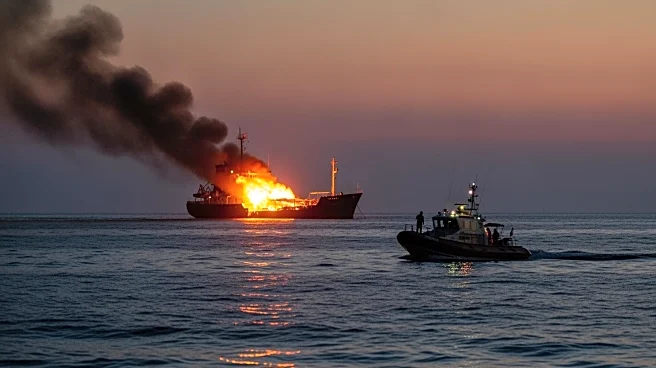What's Happening?
The LPG-laden tanker MV Falcon caught fire and was adrift off the coast of Yemen following an explosion. The European Union's naval force, Aspides, reported that the explosion forced the crew to abandon the vessel. Initial reports indicate that 15% of the Cameroon-flagged
vessel was on fire. Due to the risk of further explosions, Aspides advised nearby vessels to maintain a safe distance. An operation was underway to rescue the 26 crew members, with 24 already recovered by nearby merchant vessels. The MV Falcon was en route from Oman to Djibouti when the explosion occurred. Maritime security sources have not detected any missiles or drones in the area, and the tanker is not believed to be a target of Yemen's Houthi militants.
Why It's Important?
The incident highlights ongoing security challenges in the Red Sea, a critical maritime route for global trade. The fire on the MV Falcon poses a significant navigational hazard, potentially disrupting shipping activities in the region. The Red Sea and the Suez Canal are vital for international trade, and any disruption could have economic repercussions. The situation also underscores the persistent threat of maritime incidents in conflict-prone areas, affecting shipping insurance and security protocols. The involvement of EU naval forces in the rescue operation reflects the international community's role in ensuring maritime safety in volatile regions.
What's Next?
Efforts to fully extinguish the fire and secure the tanker are ongoing. The missing crew members remain a concern, and search operations are likely to continue. The incident may prompt further investigations into the cause of the explosion and potential safety measures to prevent similar occurrences. Shipping companies operating in the region might reassess their security measures and insurance policies. The international community, particularly maritime security organizations, may increase their presence in the area to prevent future incidents.
















